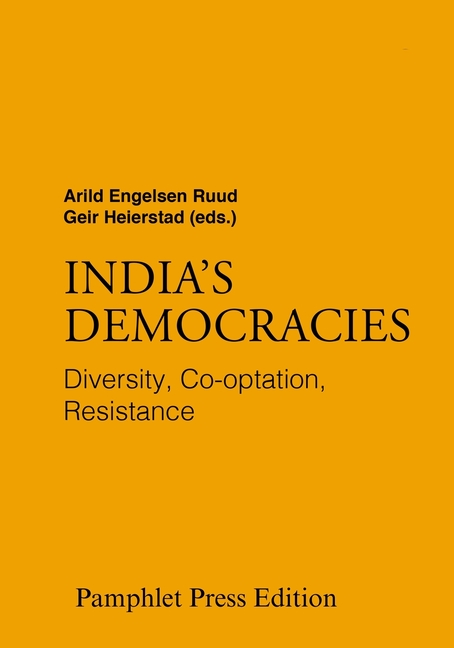Description
Explore the multifaceted nature of democracy in India through "India's Democracies: Diversity, Co-optation, Resistance". This insightful volume, edited by Arild Engelsen Ruud and Geir Heierstad, offers an interdisciplinary examination of India's complex relationship with its chosen form of government. It draws on approaches from history, anthropology, sociology, political science, and social geography.
Challenging the notion of a single "Indian democracy," this book argues for the existence of multiple "Indian democracies". This originally foreign system of government has adapted to and been shaped by a wide array of cultural, political, and historical experiences.
Key Themes Explored:
The Diversity of India's Democracies: Delve into how democracy in India has flourished despite widespread pessimism and how it defies theories based on Western experiences. The book highlights the paradoxes of high voter turnout alongside low trust in political parties and persistent inequality.
Democratic Struggles in the Adivasi Heartland: Discover how subaltern groups, like the Adivasis in western Madhya Pradesh, challenge oppressive local state structures through rights-based claims and collective action, transforming local rationalities and democratizing state-society relationships.
Canal Irrigation and the Limits to State Authority: Examine the Sardar Sarovar Project in Gujarat, challenging the narrative of centralized state control by revealing the significant influence of farmers and the complex interplay of corruption, resource limitations, and political dynamics on project implementation.
Patrimonial and Programmatic Talking about Democracy in a South Indian Village: Gain insight into how villagers in Andhra Pradesh navigate political participation, articulating both "patrimonial-democratic" views (where personal discretion of leaders is key) and "programmatic-democratic" conceptions (emphasizing systems and policies).
Mamata Banerjee: Redefining Female Leadership: Analyze the political style and career of Mamata Banerjee, West Bengal's first woman chief minister, and how she has redefined female political leadership through her activist approach and popular appeal as "didi" (elder sister) and "Durga" (goddess).
Foreign Affairs and Federal Actors in the Indian Democracy: Understand how India's federal structure and democratic setup influence its foreign policy, with increasing involvement of subnational actors, particularly in border states like Jammu & Kashmir and West Bengal.
Symbolic Engineering: Advani's Swarna Jayanti Rath Yatra: Explore how the BJP, through L.K. Advani's yatra, strategically used "symbolic engineering" to broaden its appeal by integrating regional icons and narratives into its national Hindu identity.
A Fine Balance: Censoring for Respect and Social Harmony: Investigate how India balances freedom of expression with the promotion of social harmony and respect, particularly concerning caste discrimination and religious sentiments, and the ongoing public debates surrounding these restrictions.
India and the Two Faces of Political Mobilization: Reflect on the complex challenges facing Indian democracy due to mass mobilization, examining how political elites, government institutions, and citizens' characteristics can lead to both democratic and anti-democratic outcomes.
Why This Book is a Must-Read:
"India's Democracies" offers new perspectives on understanding and analyzing the complexities of India's democratic experience. It provides a nuanced view of how democracy functions in a highly diverse and dynamic society, making it essential reading for scholars, students, and anyone interested in contemporary Indian politics and global democratic studies.
Product Details
- Jul 3, 2025 Pub Date:
- 9798290772127 ISBN-10:
- 9798290772127 ISBN-13:
- English Language




